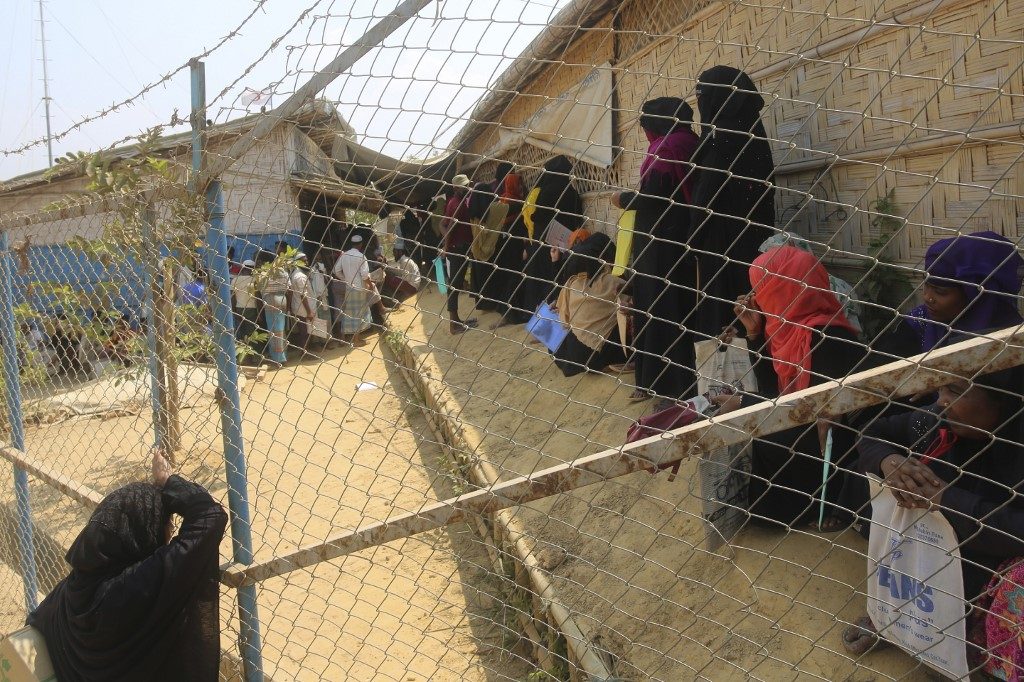SUMMARY
This is AI generated summarization, which may have errors. For context, always refer to the full article.

COX’S BAZAR, Bangladesh (UPDATED) – A Rohingya has become the first person to test positive for coronavirus from the vast refugee camps in Bangladesh that house almost a million people, officials said Thursday, May 14.
Health experts have been warning for some time that the virus could race through the sprawling, unsanitary camps that have been home to the refugees since they fled a military offensive in Myanmar more than two years ago.
Local health coordinator Abu Toha Bhuiyan initially said two refugees had been put into isolation.
The World Health Organization later said one case was of a Rohingya man and the other was of a local man who lived near the camp and was being treated at a clinic inside the area.
“One patient is from the refugee population and the other one from the surrounding host population,” WHO spokesman Catalin Bercaru told Agence France-Presse.
Bercaru said “rapid investigation teams” were being deployed to follow up on the two cases. The patients’ contacts are being traced for quarantine and testing.
Local authorities said prevention measures and testing were being stepped up.
In early April authorities imposed a complete lockdown on the surrounding Cox’s Bazar district after a number of cases, restricting all traffic in and out of the camps.
Bangladesh authorities also forced aid organizations to slash their camp presence by 80%.
Rights groups and activists have expressed concerns that the camps are hotspots of misinformation about the pandemic because of an internet ban imposed last September.
The first coronavirus case was confirmed in Bangladesh in early March and the outbreak has since worsened with at least 283 people dead and nearly 19,000 infected – figures some experts say understate the true scale of the health crisis.
The government has enforced a nationwide lockdown since March 26 in an effort to check the spread of the disease.
Despite the shutdown, the number of cases has risen sharply in recent days and the daily death toll and new infections hit a record on Wednesday, May 13. – Rappler.com
Add a comment
How does this make you feel?
There are no comments yet. Add your comment to start the conversation.